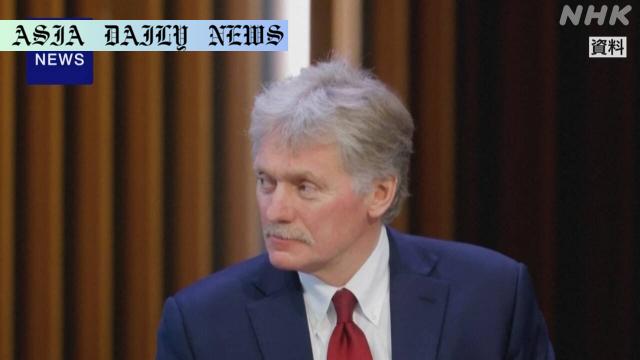US-Russia talks: Kremlin accuses Europeans of obstructing peace efforts amid Ukraine conflict.
Kremlin spokesperson Dmitry Peskov claims Europe hampers peace talks.
US-Russia talks led by Trump’s envoy aimed to resolve Ukraine conflict.
European countries continue military support for Ukraine.
Russia alleges a brutal drone attack by Ukraine in the Kursk region.

Intense Negotiations: A Struggle Towards Peace
The diplomatic relationship between the United States and Russia remains a topic of global interest as tensions surrounding the Ukraine conflict remain palpable. On April 11, US President Donald Trump’s special envoy, Steve Witkoff, met with Russian President Vladimir Putin in an attempt to discuss resolutions for the ongoing war in Ukraine. According to the Kremlin spokesperson Dmitry Peskov, the talks involve ‘quite hard work,’ but the complexity of the issues suggests that immediate results are not forthcoming.
Peskov depicted the negotiations as a step towards peace but underlined the challenges imposed by external factors, specifically accusing European countries of acting contrary to peace efforts. The spokesperson emphasized that while Moscow and Washington are involved in a process aimed at de-escalation, the actions of European nations are preventing faster progress by continuing to provide military aid to Ukraine.
European Influence and Accusations Against Ukraine
Russia’s critique of European nations sheds light on growing international complexity in conflict mediation. Peskov accused European countries of undermining the dialogue by prolonging the war through their continued financial and military support for Ukraine. This accusation implies that regional actors have the power to influence outcomes far beyond their borders and questions their ultimate motives.
Additionally, escalations from the Ukrainian side were also reported amidst these discussions. The acting governor of the Kursk region in western Russia claimed that Ukraine launched a significant drone attack that resulted in the tragic death of an elderly woman and nine civilian injuries. The persistent tension and retaliatory measures highlight the challenges that any diplomatic dialogue faces in this volatile environment.
The Path Forward: Navigating a Fragile Context
The diplomatic efforts between Moscow and Washington signify an important avenue for conflict resolution, though Peskov’s remarks reflect the obstacles inherent in such negotiations. The pressing issue is how both nations can navigate their respective interests while grappling with external influences such as European involvement. This situation also reiterates the role of regional and global powers in either accelerating or obstructing peace efforts between major global players.
While it is clear that no immediate breakthrough is possible, the continuation of dialogue remains a crucial step. As tensions persist, there is hope that these discussions may one day contribute to a comprehensive roadmap for peace in Ukraine as well as improved global relations involving Europe, the United States, and Russia.



Commentary
Geopolitical Challenges in US-Russia Relations
The ongoing conflict in Ukraine has brought to light the intricacies of international diplomacy in an era where alliances are more fragmented than ever. The meeting between US envoy Steve Witkoff and Russian President Vladimir Putin reflects the dire need for dialogue in calming escalating tensions. However, the apparent roadblocks identified by Kremlin spokesperson Dmitry Peskov underline how difficult this path will be.
European countries’ commitment to Ukraine through military and financial support, as criticized by Russia, points to a fundamental divide in global perspectives. While Moscow and Washington frame their dialogue as work ‘in the name of peace,’ Europe’s broader support for Ukraine suggests allegiance to sovereignty and resistance. These actions likely stem from a fear of setting a dangerous precedent in allowing one nation to infringe on another’s territorial integrity unchallenged.
Confronting Domestic and Regional Repercussions
Inside Russia’s borders, attention must also be paid to domestic disruptions caused by the conflict. With claims of drone attacks in regions like Kursk, civilians are increasingly caught in the crossfire. Russia’s accusations against Ukraine further complicate the picture, as such incidents add fuel to the fire rather than encourage de-escalation. This shows the real human cost of the conflict, which makes diplomatic negotiations all the more urgent yet profoundly complicated.
In the broader context, one must ask whether the United States and Russia—two nations representing significantly divergent political ideologies—can find common ground. While talks continue, the polarizing nature of international alliances suggests that efforts in isolation by Moscow and Washington will face numerous external challenges.